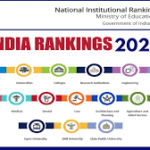
Best Course after 12 Commerce 2024: Fees & Average Salary
Best Course after 12 Commerce: In the ever-changing world of education and career paths, choosing the right course after finishing 12th commerce is a crucial decision that can shape your professional journey. As you enter 2024, the field of post-12th commerce education provides numerous opportunities for you to explore and succeed in different areas.
You have a wide range of options, from traditional courses like Bachelor of Commerce (B.Com) to modern programs such as Bachelor of Business Administration (BBA) and specialized paths like Chartered Accountancy (CA) and Company Secretary (CS). Each course offers unique chances for your growth, skill enhancement, and career progress in the competitive global job market.
This blog is here to help you navigate through the best courses after you complete your commerce studies.
What are the Best course after 12 Commerce?
The best courses after 12 commerce include a variety of options that cater to different interests and career paths. Some of the top courses after 12th commerce are:
- Bachelor of Commerce (B.Com)
- Bachelor of Business Administration (BBA)
- Bachelor of Commerce in Financial Market (BFM)
- Bachelor of Financial Markets (BFM)
- Bachelor in Economics
- Chartered Accountancy (CA)
- Company Secretary (CS)
- Bachelor of Management Studies (BMS)
- Bachelor of Computer Application (BCA)
- Bachelor of Accounting and Finance (BAF)
These courses provide a strong foundation in areas like finance, accounting, business administration, and economics, preparing students for diverse career opportunities in the corporate world. Additionally, diploma courses like Diploma in Banking and Finance, Diploma in Retail Management, and Diploma in Computer Application offer specialized skills and knowledge for specific career paths.
Read our Latest Post
Course after 12 Commerce: Average Fees (India)
| Course after 12 Commerce | Average Fees (INR) |
|---|---|
| Bachelor of Commerce (B.Com) | 7,500 – 1,00,000 |
| Bachelor of Business Administration (BBA) | 50,000 – 3,00,000 |
| Bachelor of Commerce in Financial Market (BFM) | 10,000 – 3,00,000 |
| Bachelor of Financial Markets (BFM) | (Refer B.Com in Financial Market) |
| Bachelor in Economics | Varies (consider B.Com Economics) |
| Chartered Accountancy (CA) | Course Fees + Coaching (~5,00,000) |
| Company Secretary (CS) | Course Fees + Coaching (~3,00,000) |
| Bachelor of Management Studies (BMS) | 20,000 – 15,00,000 |
| Bachelor of Computer Application (BCA) | 50,000 – 2,00,000 |
| Bachelor of Accounting and Finance (BAF) | (Refer B.Com Accounting and Finance) |
Course after 12 Commerce: Average Salary 2024(India)
| Course after 12 Commerce | Average Annual Salary (INR) |
|---|---|
| Bachelor of Commerce (B.Com) | ₹2,50,000 – ₹4,50,000 |
| Bachelor of Business Administration (BBA) | ₹2,00,000 – ₹6,00,000 |
| Bachelor of Commerce in Financial Market (BFM) | ₹4,00,000 – ₹6,00,000 |
| Bachelor of Financial Markets (BFM) | ₹3,50,000 – ₹8,00,000 |
| Bachelor in Economics | ₹3,50,000 – ₹8,00,000 |
| Chartered Accountancy (CA) | Varies significantly based on experience and specialization |
| Company Secretary (CS) | Varies significantly based on experience and specialization |
| Bachelor of Management Studies (BMS) | ₹3,00,000 – ₹6,00,000 |
| Bachelor of Computer Application (BCA) | ₹2,50,000 – ₹5,00,000 |
| Bachelor of Accounting and Finance (BAF) | ₹3,00,000 – ₹6,00,000 |
Please note that these figures are approximate averages and can vary based on factors such as location, industry, and individual skills and experience. For specialized roles, salaries may differ significantly. Additionally, pursuing higher qualifications or certifications can impact earning potential for course after 12 Commerce.
How can commerce courses help in career advancement in the Global Market?
Commerce courses can significantly contribute to career advancement in the global market by equipping individuals with essential skills and knowledge that are highly valued across various industries.
- Provide a strong foundation: These courses provide a strong foundation in financial management, cost analysis, budgeting, data analysis, decision-making, and demand forecasting, which are crucial skills in inventory management and procurement. Additionally, commerce courses cover ethics and legal principles essential for supplier relations and contracts, preparing individuals to navigate complex business environments with integrity and compliance.
- Fosters better business acumen: Moreover, commerce education fosters better business acumen, enabling individuals to understand the intricacies of financial management, which is vital in today’s competitive landscape. By learning about financial management through commerce courses, individuals can make informed decisions, manage resources effectively, and develop a keen sense of financial literacy. This knowledge is particularly valuable for roles that involve financial management, such as Chartered Accountancy (CA), Company Secretary (CS), and other finance-related professions.
- Offer real-life applications: Furthermore, commerce courses offer real-life applications that are visible at both macro and micro levels, allowing individuals to develop practical skills that are directly applicable in the business world. Whether it is through accountancy, business studies, economics, or entrepreneurship, commerce education instills financial literacy, budgeting skills, and an understanding of how economic decisions impact finances.
- This practical knowledge is invaluable for professionals seeking to excel in diverse fields like banking, investing, consulting, finance, and insurance sectors, providing them with a competitive edge in the global job market.
Recent Posts
-
Teaching Jobs Demand in…
27 November 2025
-
Flexible 100% Online MBA…
19 November 2025
-
Why Jobs in Guwahati…
17 November 2025
-
Northeast India NIRF 2025…
5 September 2025
-
SSC CGL Admit Card…
4 September 2025






Leave Comment